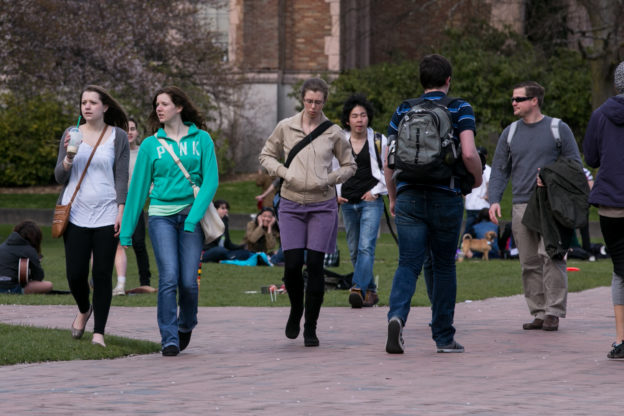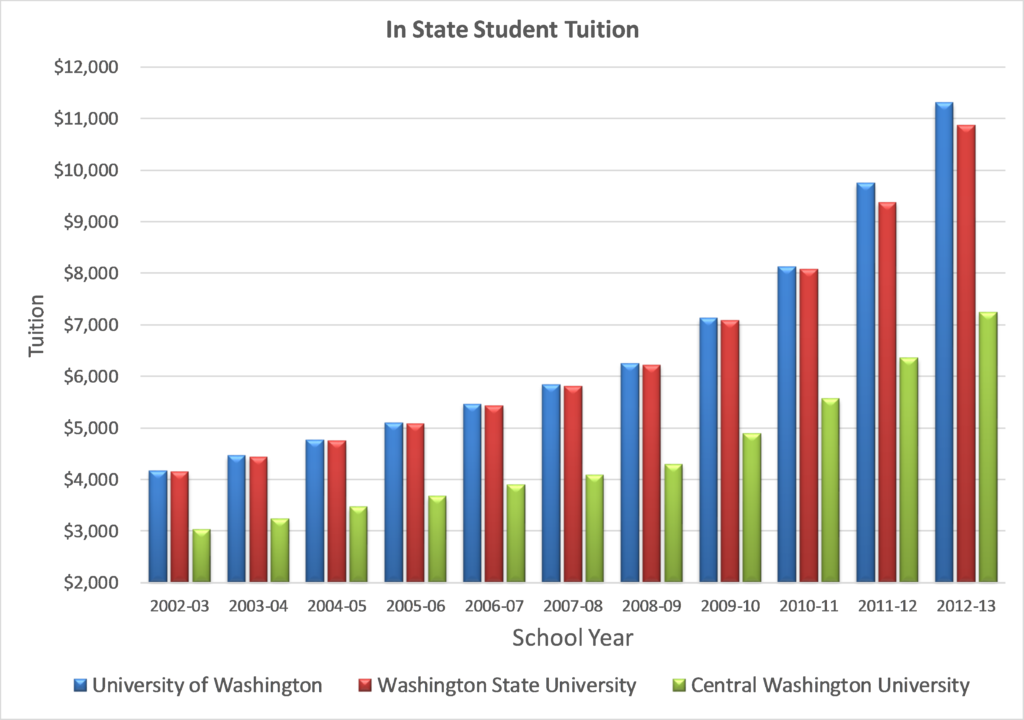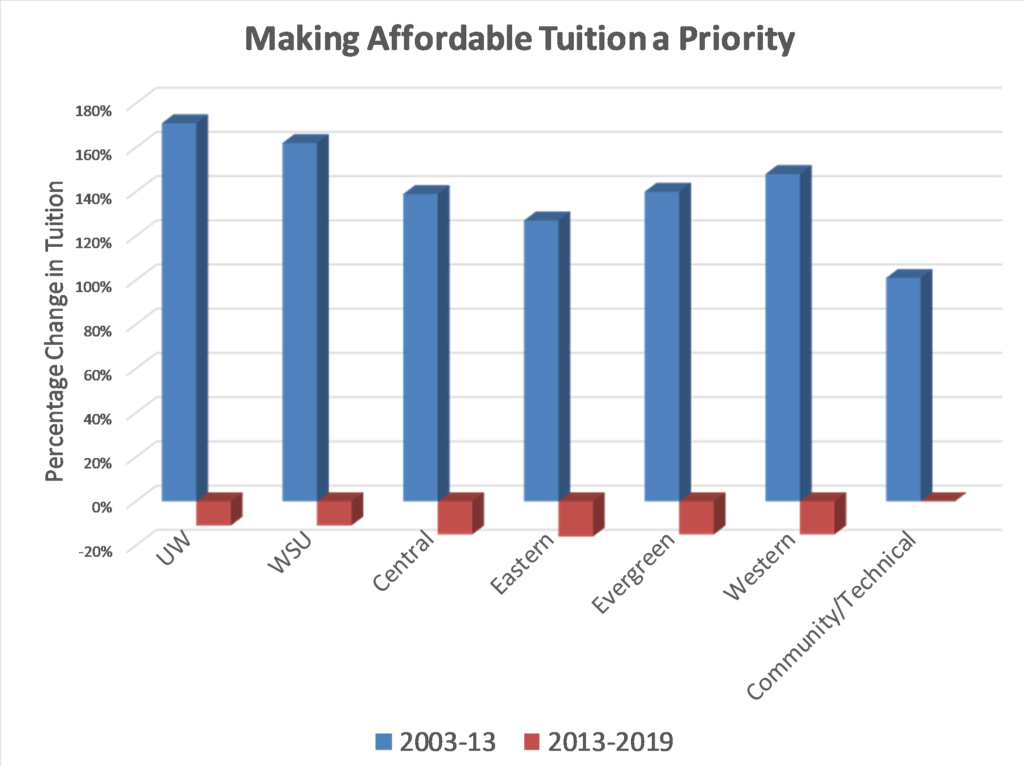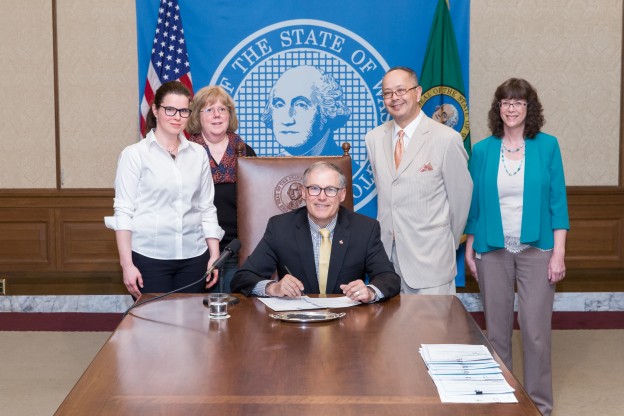With all of the attention on K-12 education this year, some other important issues didn’t always receive the public discussion and recognition they deserve. One of the many important items we continued tackling this year was our state’s tuition policy.
As I’ve mentioned in previous emails, the decade before 2013 saw students at state colleges and universities play the role of piggy bank for lawmakers who wanted to grow government elsewhere or fill budget gaps. By reducing state support for higher education and increasing tuition to make up the difference, students and families were subject to a hidden, but expensive tax increase.
For example, an in-state student at Central Washington University paid $3,027 for tuition in 2003. By 2012, tuition increased to $7,245. Some lawmakers defended this by claiming it was due to the difficult spending choices following the Great Recession. However, this pattern began well before the economy turned, even as general government spending increased significantly.
Even with the dramatic increase in tuition at Central, students at the University of Washington, Washington State University and Western Washington University saw even higher percentage increases.
As you can see on the chart below, students and their families faced an increasingly difficult barrier to access higher education in our state, at a time when more jobs require some sort of training after high school.
Time for a change
In 2013, we were successful in implementing the state’s first freeze of college tuition rates in more than 30 years. Two years later, we successfully sponsored and funded a tuition cut ranging from 5 to 20 percent.
With rising student loan debt a serious issue facing young adults throughout the country, our prioritization of higher education caught national attention.
However, less discussed following four years of frozen or reduced tuition, was the long-term policy we created to prevent lawmakers from balancing the budget on the backs of students in the future.
Beginning this school year, in-state undergraduate tuition at all of Washington’s public colleges and universities is capped at the average growth rate of the state’s median hourly wage.
This means schools were permitted — but not required — to increase tuition by a maximum of 2.2% this year and 2% for the 2018-19 school year. By tying tuition growth to wage growth, institutions are still able to collect tuition that aligns with potentially rising costs, while students and their families are protected from the frequent double-digit increases seen between 2003 and 2013.
Despite a small increase tied to real world economic conditions, students at Central Washington will have seen a net 15% reduction in tuition between 2013 and 2019. This stands in stark contrast to the 139% increase Central students saw between 2003 and 2013. While it varies from school to school, this example plays out similarly at other state colleges and highlights how we’ve prioritized accessible higher education since 2013.
Below you can see the percentage increase or decrease in tuition for each of the state research institutions, four-year colleges, and community and technical colleges.
By stopping dramatic increases in tuition, and even turning it around, we’ve been able to make school more affordable for current students, and provide more predictable costs for future students.
While the actual tuition cut received much of the attention, this long-term tuition limiting policy will help thousands of students for years to come.














